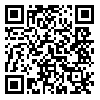BibTeX | RIS | EndNote | Medlars | ProCite | Reference Manager | RefWorks
Send citation to:
URL: http://ijdld.tums.ac.ir/article-1-5296-en.html
2- Cell Biology and Development, Islamic Azad University, Damghan Branch, Damghan, Iran
Background: Diabetic foot ulcers are important topic in diabetes care. Diabetes is one of the most common metabolic diseases of endocrinology. Raspberry (Rubus fruticosus) has anti-inflammatory, anti-septic and anti-oxidant effects. The aim of present study is healing effects of raspberry extract on the regeneration process of skin wounds in control and diabetic rats.
Methods: In this study, 48 adult male rats were divided into four groups (n=12 each) including: control group (non-treated and non-diabetic rats), sham (eucerin-treated diabetic rats), experimental1 (non-treated diabetic rats) and experimental 2 (raspberry-treated diabetic rats). Diabetes was induced by 55 mg/kg Streptozotocin (STZ) in three groups of rats. A wound with 3 cm length was created on the skin of back side of animals in all groups. The experimental 1 group was treated by eucerin and experimental 2 groups were treated by raspberry extract two times in a day. Microscopic and macroscopic studies were performed on wound healing process on days of 3, 5, 7, 14 and 21.
Results: The findings showed that sham and experimental 1 group had later healing effect comparing with control group. The speed of wound healing in raspberry extract-treated rats (experimental 2 groups) had significantly increased in comparison with control group and the wound surface area has been significantly decreased in comparison with all other groups (P ≤ 0.05).
Conclusion: It seems that topical application of raspberry extract can accelerate the wound healing in diabetic rats and materials in raspberry extract stimulate the collagen synthesis, faster wound contraction and angiogenesis.
Received: 2014/12/31 | Accepted: 2015/07/25 | Published: 2016/01/24
| Rights and permissions | |
 |
This work is licensed under a Creative Commons Attribution-NonCommercial 4.0 International License. |





